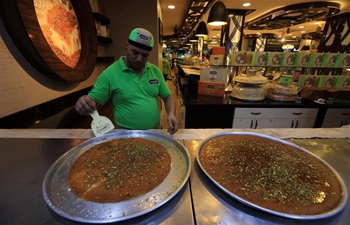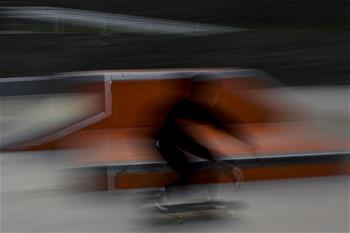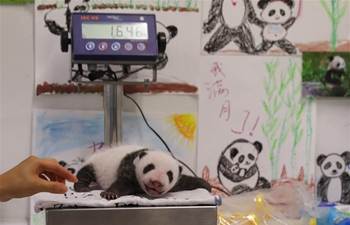JERUSALEM, Sept. 10 (Xinhua) -- Israeli researchers have found a way to store a huge amount of digital information in DNA molecules, significantly streamlining the data writing process, the Israel Institute of Technology (Technion) said on Tuesday.
In the study which was published in the journal Nature Biotechnology, the researchers at the Technion and the Interdisciplinary Center in central Israel demonstrated data storage at a density equivalent to storing more than 1 million gigabytes per gram of DNA.
Such density theoretically allows storing all the information stored in Youtube in one teaspoon.
To test the method, the researchers coded thousands of copies of the Bible in a bilingual version into 10 nanograms (billionths of a gram) of DNA in vitro.
The DNA molecule is a chain consisting of nucleotide links, divided into 4 types, namely A, C, G and T. In order to store information in DNA, each binary sequence must be translated into the complex sequence of these letters.
Next, in a process called synthesis, actual DNA molecules are produced, representing the same sequences. To read the data, encoding of the DNA molecules is required.
The breakthrough in the new study allows for an increase in the number of the encoding letters with each new letter being a unique combination of the original letters such as the creation of new colors by mixing base colors.
The letter addition allows encoding more information at each position in the sequence of DNA molecules, enabling each unit of information to encode with 20 percent fewer synthesis cycles, and perhaps 75 percent less in the future. So the storage process will be faster and cheaper.
The researchers said that the new technology could streamline more processes in synthetic biology and biotechnology.

















